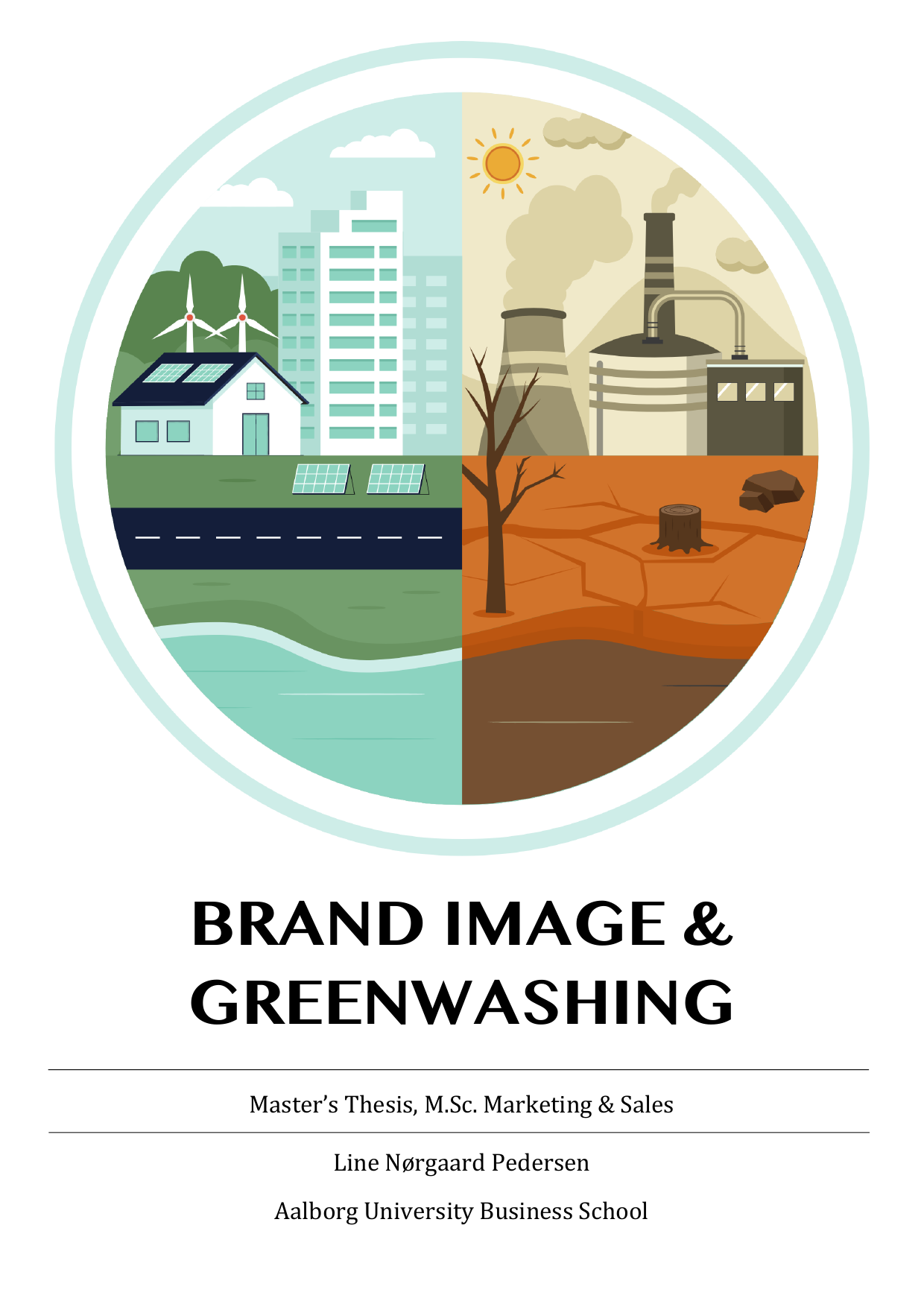
Brand Image & Greenwashing : How companies can manage, and prevent, crises caused by greenwashing with the aim of rebuilding and maintaining their brand and image.
Author
Term
4. Semester
Publication year
2024
Submitted on
2024-06-01
Pages
92
Abstract
The phenomenon of overconsumption, which has been observed in numerous industries, has reached a point where it is becoming a critical issue. Overconsumption is driven by a culture of economic growth and consumerism. Fast fashion enables mainstream consumers who cannot afford the original designs to obtain a new look at a budget-friendly price. This has led to a tendency among manufacturers to reduce the quality of clothing items, as they are no longer expected to be durable and last indefinitely. Additionally, this type of fashion is frequently associated with the use of textiles that have a significant carbon footprint. In response, governments and international bodies have enacted regulations to promote sustainable practices and corporate accountability. The analysis of this thesis draws upon surveys and market studies to provide insights into consumer behavior, preferences, and the influence of social media and influencers in shaping fashion trends. In the context of contemporary business, Corporate Social Responsibility (CSR) has emerged as a pivotal concept, integrating social and environmental concerns into business operations. CSR offers numerous advantages, including enhanced brand reputation and consumer loyalty. However, as CSR becomes a central part of corporate strategy, the issue of greenwashing has become more prominent. Greenwashing is defined as the act of misleading consumers about the environmental benefits of a company's products or practices. This deceptive marketing strategy frequently involves the use of exaggerated claims, ambiguous language, or selective information disclosure, which is collectively giving a false impression of environmental responsibility. If greenwashing persists, it could undermine the genuine sustainability efforts of responsible companies, erode consumer trust, and cause significant reputational damage when exposed. This master's thesis therefore examines the consequences of misleading branding, including legal repercussions and long-term damage to consumer trust and financial performance. This thesis examines the strategies that companies can employ to navigate and prevent greenwashing crises while maintaining their brand reputation.
Documents
